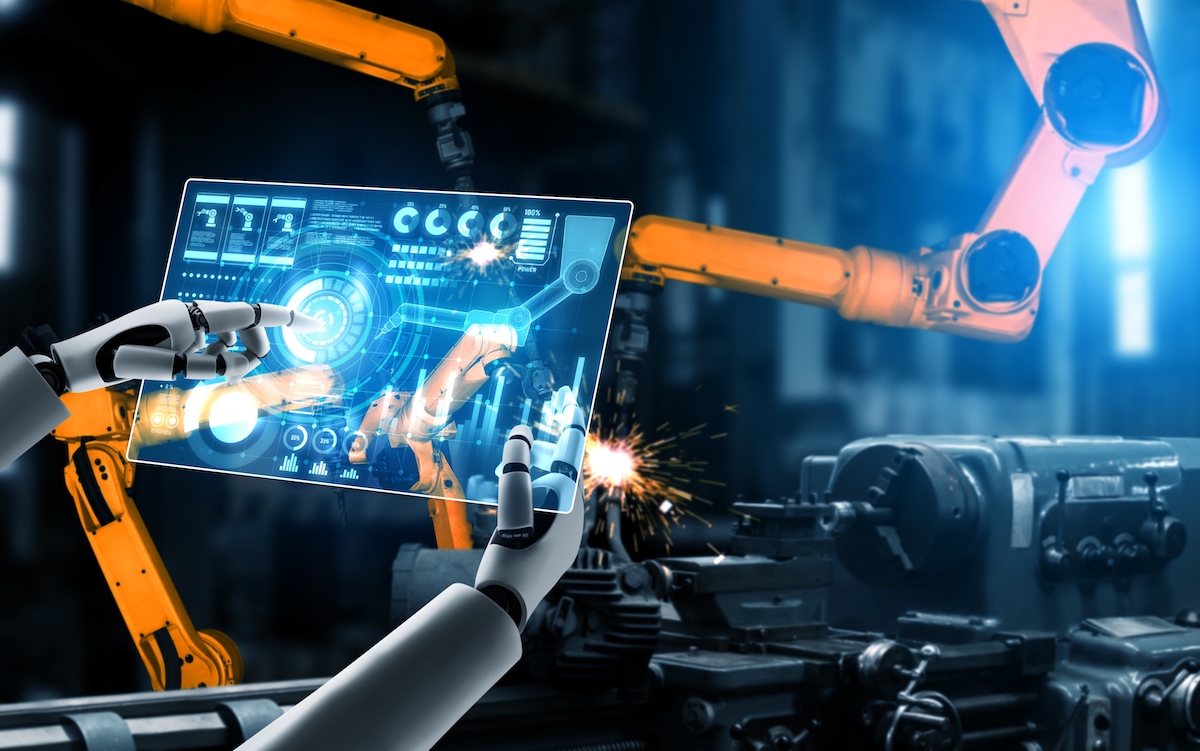AI in Manufacturing: Driving Industry 4.0 and Smart Factories

Artificial Intelligence (AI) is at the forefront of the fourth industrial revolution, often referred to as Industry 4.0. By integrating AI into manufacturing processes, companies are creating smart factories that are more efficient, flexible, and productive than ever before. This article explores the transformative impact of AI on the manufacturing sector and how it's reshaping the future of production.
Key Applications of AI in Manufacturing
- Predictive Maintenance: AI algorithms predicting equipment failures before they occur.
- Quality Control: Computer vision and machine learning ensuring product quality in real-time.
- Supply Chain Optimization: AI models optimizing inventory levels and logistics.
- Generative Design: AI creating innovative product designs based on specified parameters.
- Process Optimization: Machine learning algorithms fine-tuning production processes for maximum efficiency.
Benefits of AI in Manufacturing
| Benefit | Description |
|---|---|
| Increased Efficiency | AI optimizing production processes, reducing waste and downtime. |
| Improved Quality | Real-time quality control leading to fewer defects and recalls. |
| Cost Reduction | Predictive maintenance and optimized processes lowering operational costs. |
| Enhanced Safety | AI systems monitoring and maintaining safe working conditions. |
| Faster Innovation | AI-driven design and simulation accelerating product development. |
| Sustainable Production | AI optimizing resource use, reducing energy consumption and waste. |
Real-World Impact
AI is already making significant strides in various areas of manufacturing:
- Automotive: AI-powered robots assembling vehicles with high precision.
- Electronics: Machine learning algorithms optimizing semiconductor production.
- Pharmaceuticals: AI accelerating drug discovery and ensuring quality control in production.
- Aerospace: Generative design creating lighter, stronger aircraft components.
- Food and Beverage: AI ensuring food safety and optimizing production schedules.
Challenges and Considerations
While AI offers immense potential in manufacturing, several challenges need to be addressed:
- Data Quality and Integration: Ensuring clean, integrated data from various sources.
- Workforce Adaptation: Training employees to work alongside AI systems.
- Initial Investment: Balancing the high upfront costs with long-term benefits.
- Cybersecurity: Protecting interconnected smart factory systems from cyber threats.
- Ethical Considerations: Addressing the impact of AI on employment and decision-making.
NinjaChat: Empowering Manufacturers with AI
NinjaChat is playing a crucial role in democratizing access to advanced AI models for manufacturers of all sizes. By providing an intuitive interface to interact with state-of-the-art language models, NinjaChat enables manufacturing professionals to leverage AI for various applications.
How NinjaChat Enhances Manufacturing:
- Process Analysis: Assisting in the interpretation of complex production data.
- Documentation: Helping create and update technical documentation and manuals.
- Problem Solving: Aiding engineers in troubleshooting and problem-solving.
- Training Material: Supporting the creation of AI-enhanced training content for staff.
- Communication: Facilitating clear communication across global manufacturing teams.
With flexible pricing options, NinjaChat makes these powerful AI tools accessible to manufacturing companies of all sizes, from small workshops to large industrial plants.
The Future of AI in Manufacturing
As AI technology continues to evolve, we can anticipate:
- Autonomous Factories: Fully automated production lines with minimal human intervention.
- Digital Twins: AI-powered virtual replicas of physical assets for advanced simulation and optimization.
- Collaborative Robots (Cobots): More sophisticated AI-driven robots working safely alongside humans.
- Sustainable Manufacturing: AI optimizing production for minimal environmental impact.
- Mass Customization: AI enabling efficient production of highly customized products at scale.
Conclusion
Artificial Intelligence is ushering in a new era of manufacturing, promising enhanced efficiency, improved quality, and unprecedented flexibility. From optimizing production processes to enabling predictive maintenance, AI is proving to be an indispensable tool in the manufacturing sector.
Platforms like NinjaChat are playing a vital role in this transformation by making sophisticated AI tools accessible to manufacturers of all sizes. By leveraging these advanced AI capabilities, the manufacturing industry can tackle complex challenges, improve productivity, and drive innovation.
As we move forward, the integration of AI in manufacturing will likely become increasingly prevalent, driving the evolution of smart factories and Industry 4.0. While challenges remain, the potential benefits of AI in manufacturing are immense, offering the promise of a more efficient, sustainable, and competitive industrial landscape for the future.